The impact of the coronavirus pandemic on communities across the state of Michigan has been devastating. However, communities of color have borne the brunt of this impact, experiencing significantly higher rates of illness, death, job loss and financial hardships, according to data from the Michigan Department of Health and Human Services.
W.K. Kellogg Foundation program officer Dr. Marijata Daniel-Echols says this has led to an increase in stress and isolation exacerbated by an overall lack of access to culturally congruent mental health resources and support.
“Folks of color access some mental health services at lower rates while also having difficulty finding therapists with similar lived experiences,” she says. “But it doesn’t have to be this way. Here at the Kellogg Foundation, we have the privilege to bring some relief by partnering with folks on the ground doing this incredible work.”
According to a 2023 Grand Valley State University report on healthcare trends in West Michigan, non-white individuals living in Kent, Ottawa, Muskegon and Allegan counties are more likely to be uninsured, have limited access to care due to costs, and are less likely to have a usual source of care.
While these disparities have occurred across the state of Michigan, Daniel-Echols says her team recognized an opportunity to address the gaps faced by communities of color in the area, leveraging the presence of existing organizations and programs that specifically cater to and are led by Black, Indigenous and People of Color.
By fostering partnerships with organizations that recognize the significance of mental health services, the foundation strives to ensure the well-being of children, their families and communities. “It is important to us that we partner with organizations that support children, their families and communities – and when it comes to mental health services, it is clear that we need to take care of them and their caregivers,” Daniel-Echols says.
Mental Health Clinicians of Color

Rebecca Spann, founder and director of the Mental Health Clinicians of Color Grand Rapids.
Mental Health Clinicians of Color Grand Rapids (MHCOCGR) is an organization that emerged from the need to see more practicing therapists of color in the community.
Rebecca Spann is the founder and the current director of the organization.
“MHCOCGR was created to have a safe space for mental health professionals in Grand Rapids and surrounding areas,” she explains. “We believe that if the care or the provider is taken care of, then we can be most effective in treating our communities.”
When Spann first started practicing as a therapist in 2019, she reached out to other therapists of color like her through Facebook and Psychology Today.
“I created my own network with therapists of color first, and then I realized that if I needed this, other people must need it as well,” she adds.
Spann is Black and says the insight, care, and support she receives from other Black therapists are invaluable and unique and not something that has always been easy to access.
“We know historically that BIPOC [Black, Indigenous and People of Color] have always been known for storytelling, and we’ve always been known for our community and our healing through relatability,” she says. “Understanding that someone else who was in the same shoes as me or looks similar to me has worked through a difficult or traumatic experience can be really empowering.”
One of the most challenging parts, according to Spann, is breaking down the stigma. She says many people in communities of color struggle to seek mental health care.
“People have been leery of entering into systems of mental health care because historically, that does not carry a positive name. There were situations where state systems were sent to be helpful, but in some cases, they were harmful,” Spann says.
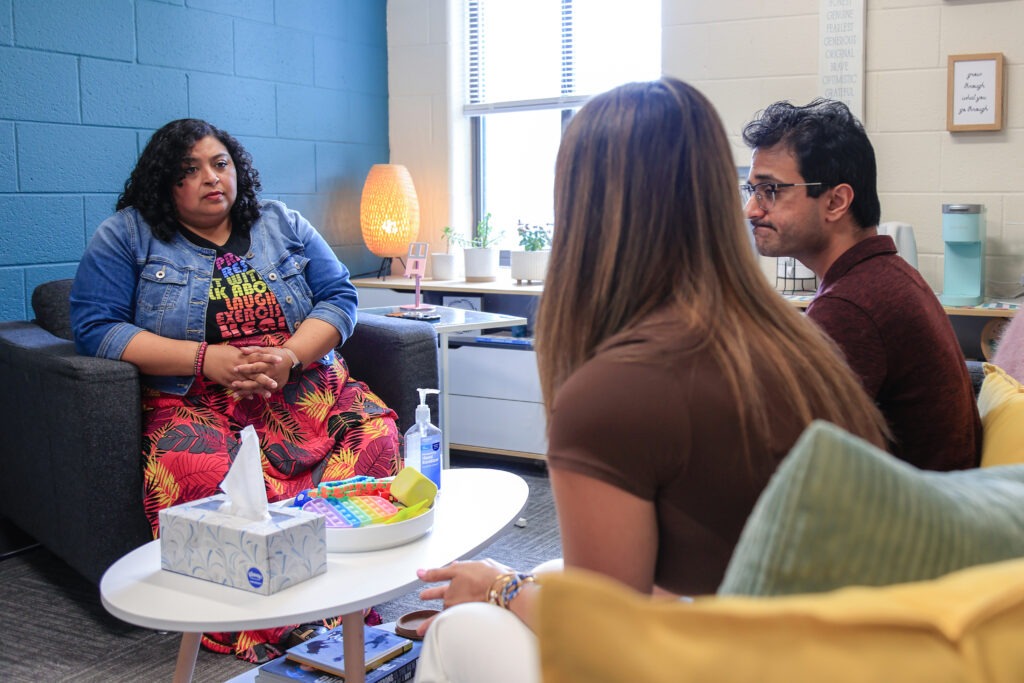
Asking for help is a lot easier when the care provider looks like and understands the individual reaching out for help.
“It also helps reduce anxiety about the whole process. It makes it easier for them to open up and talk about what they’ve experienced because they’re not having to explain the context or understand cultural habits or dynamics,” Spann adds.
MHCOCGR isn’t just a space for therapists of color to connect with one another, but it also hosts an online directory for people looking to get connected with therapists of color.
“When I launched my practice, I received many requests for therapy,” she says.
Due to the large number of people reaching out, Spann started keeping a document with the contact information of other therapists of color.
“Often, I would see on Facebook that people were looking for a Black therapist or a Spanish-speaking therapist, which pushed me to create a central directory and resource where people could find a therapist that meets their needs,” she says.
The MHCOCGR directory offers a diverse selection of over 60 therapists from underrepresented racial groups and ethnicities, allowing individuals to browse through their profiles and self-select a person they want to work with.
Growing that list and ensuring all of the therapists represented have the tools they need to be successful are two of Spann’s main priorities. She says people of color aspiring to be therapists often face additional barriers in paying for certifications, training and schools.
“We strive to offer support to clinicians who need help passing their licensing tests,” she says. “Anyone in the mental health field understands that these tests are very challenging, so we offer test prep groups to provide assistance.”
Looking ahead, Spann hopes to grow the directory to include therapists across the entire state of Michigan.
Finding Refuge
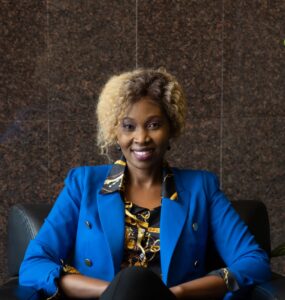
Fridah Kanini, founder and CEO of A Glimpse of Africa.
Fridah Kanini remembers how she felt when she immigrated to the United States from Kenya, leaving behind everything that was familiar, her mother and siblings.
“When I came here, my goal was to help my family, lift them out of poverty, support my brothers in school and do everything I could to improve their lives,” she says.
Being a new immigrant isn’t easy, explains Kanini.
“There are language and cultural barriers, and at the same time, new immigrants are trying to settle in a new country while looking for work,” she adds. “When you’re in a new place, you’re trying to navigate so many things on top of facing discrimination and many barriers.”
During her early years in the United States, Kanini struggled with separation from her family, with an inability to visit her home due to lengthy and complex immigration processes. Meanwhile, her mother became very sick with cancer, and the only tangible way Fridah could support her was by sending money back home.
“I tried to bring my mother here, but it never worked out. I felt helpless and stuck as I struggled through life, trying to work, support my siblings, doing my best to fundraise to pay for my mother’s care,” Fridah remembers.
She says she became really depressed, and her work performance suffered.
“I was a high performer, but then I wasn’t, and I was told that I could lose my job,” she says. “I didn’t know what to do because I was spending every penny I had to save my mom, and I just felt so alone.”
That feeling of loneliness coupled with a sense of not being understood is something she never wants other immigrants like her to go through.
This was the impetus for starting A Glimpse of Africa. A Glimpse of Africa is a non-profit focused on ensuring African immigrants and refugees are part of a healthy, thriving, happy and well-rounded community. Part of that involves supporting the mental health of these communities.
“First, we want to reduce stigma, raise awareness and create easy access to resources,” Kanini explains. This includes making it easy for people to connect with mental health support that deeply understands the difficulties many new immigrants from Africa face when coming to the United States for the first time.
“We do this through health navigators who understand the community they are serving and know how to connect our members with the resources and support they need,” Kanini says. “We meet with them, go into their homes, greet them and welcome them.”
That’s the most important step to reduce any stigma people may have in seeking support.
“If they feel understood, if someone talks to them in their language, if I share my story of what it was like to come here, then they too feel comfortable sharing,” she adds.
It’s in that vulnerable exchange that Kanini says the magic of connection happens.
“They feel seen, and they get to see that they too deserve to be happy and supported.”
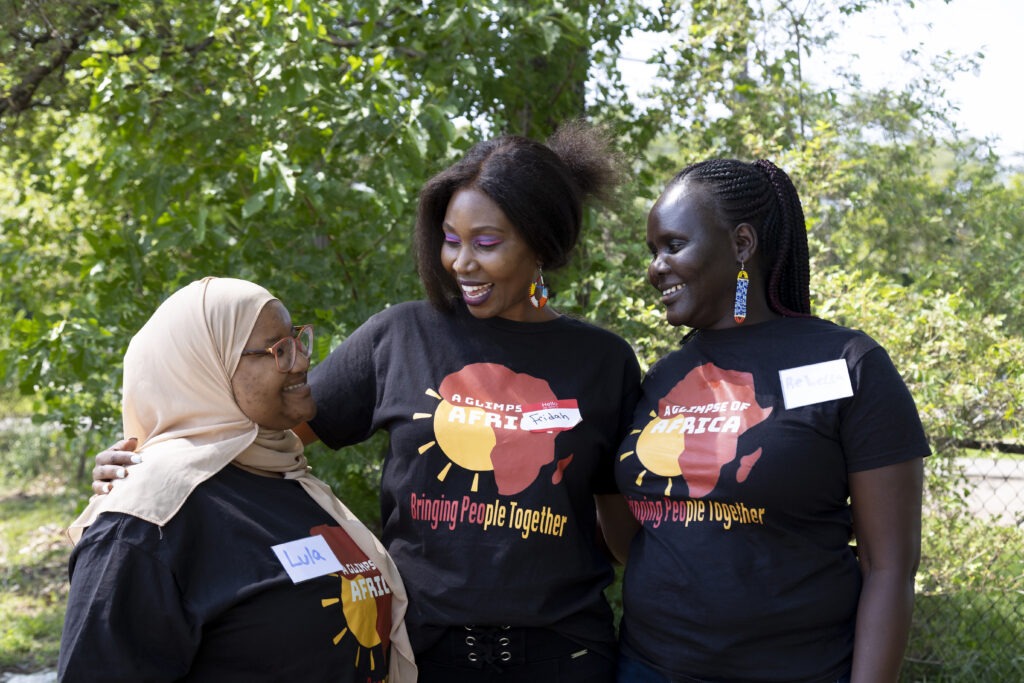
Kanini with two team members of A Glimpse of Africa.
Fostering Belonging in Schools
Dr. Veneese Chandler has been leading Family Outreach Center for nearly 40 years, and one of her consistent priorities has been to support the mental health journey of young people in the community.
“We have historically worked in schools, but as we know, with COVID-19 and even before that, the impact that poverty has had on a number of families of color and low-income families in the community has increased the need for mental health and other supportive services we provide,” she says.
Chandler explains that in the last decade, children and young people have become more susceptible to experiencing the effects of trauma happening in their communities and beyond.
“The internet is at their fingertips, and they can witness incidents of police brutality firsthand from their devices,” she says. “This, coupled with the impact of poverty, is making kids more vulnerable than ever before.”
About 95% of the people Family Outreach works with are struggling to make ends meet or living paycheck to paycheck, using Medicaid as their insurance.
“So, one of the things we’ve been preoccupied with is ensuring that regardless of income status or ability to pay, people living in the 49507 zip code have access to quality mental health services.”
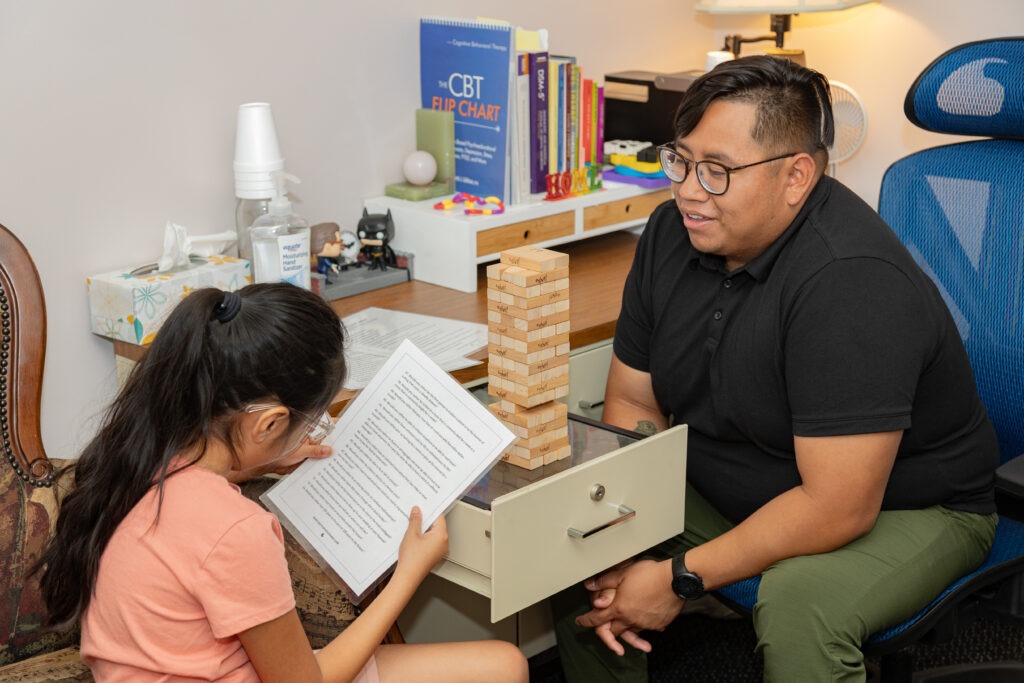
Hernandez with a young client.
Giovanni Hernandez works one-on-one with children at Grand Rapids Public Schools as a mental health therapist.
“One of the things I take pride in is being able to provide services to clients in their native language. I provide services in English and Spanish,” he says. “I’ve found that it provides comfort to parents of clients who are Spanish-speaking only.”
In his work, Hernandez engages one-on-one with children and their parents to help them process trauma and learn how to regulate their emotions.
“Many of us often become desensitized to our own traumas because of our life experiences. What I often find is that trauma is overlooked and not always addressed,” he adds. “It helps to be able to break down for clients the effects of trauma and how it may continue to affect them in their present-day lives.”
Family Outreach Center has programs available to help break down cost barriers for both uninsured and underinsured individuals who meet the criteria for their services.
Marissa Brill works alongside Hernandez as a school-based therapist. She says one of the most common concerns children bring to her is anxiety, which she believes has been exacerbated by the effects of social isolation from the coronavirus pandemic.
“This year, in particular, I had a lot of kids with separation and social anxiety, and I think it comes from not having those first few years of developing social relationships and interactions in a school environment,” she says.
Part of her work involves leading therapy group sessions with struggling kids. She says it helps break down some of the stigma they might feel about their own mental health struggles.
“We talk a lot about the connection between our thoughts, feelings and actions, and how our thoughts play into how we feel and act in different situations,” she adds.
For both Brill and Hernandez, the biggest reward that comes with helping young people build coping skills and learn to regulate emotions is knowing that they are contributing to creating a healthier community where everyone feels a sense of belonging.
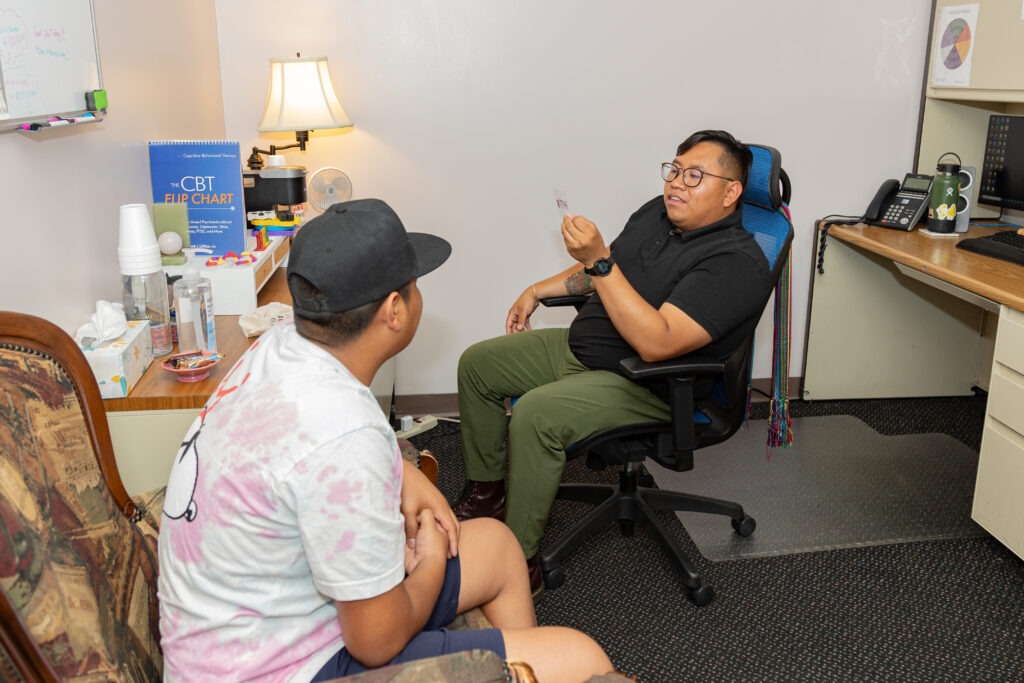
Photos by Isabel Lopez Slattery.

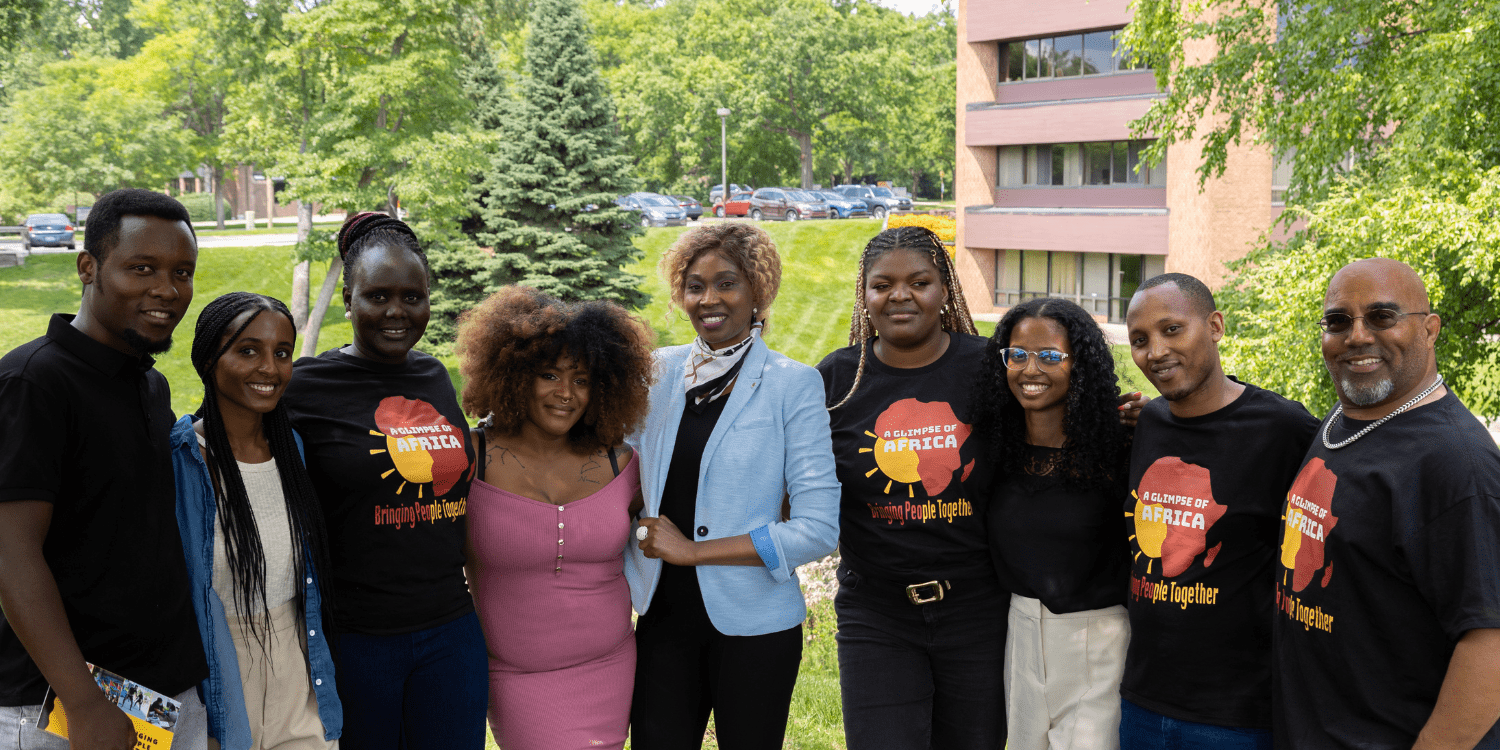
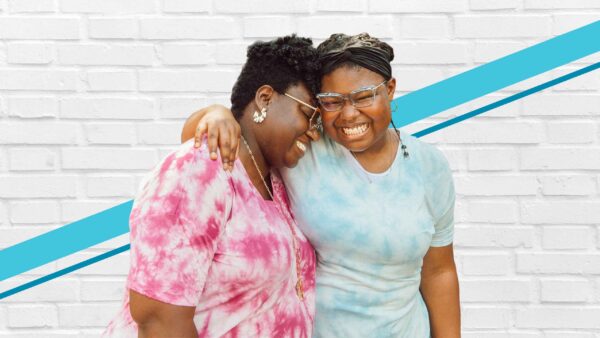
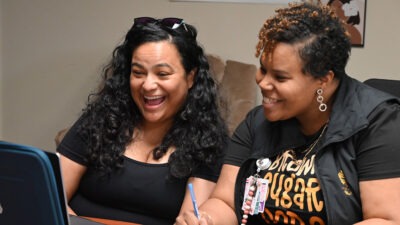
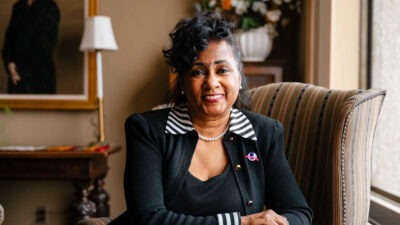
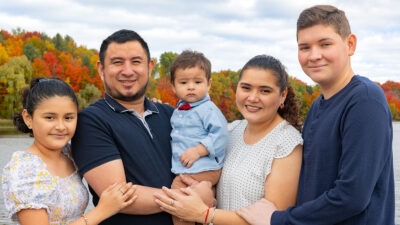
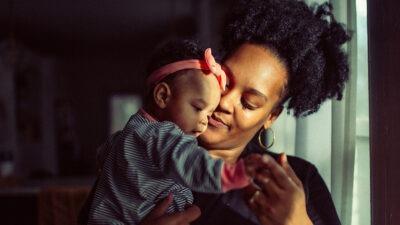

Comments